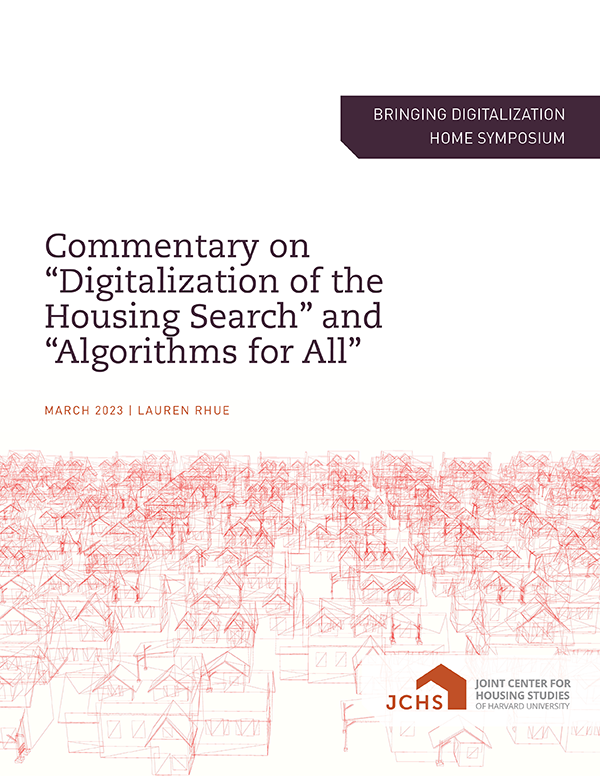Commentary on “Digitalization of the Housing Search: Homeseekers, Gatekeepers, and Market Legibility” and “Algorithms for All: Has Digitalization in the Mortgage Market Expanded Access to Homeownership?”
Digitalization is promising to expand opportunities for traditionally disadvantaged individuals and communities in the housing market. Digital platforms, such as Zillow and Redfin, are diminishing the role of traditional gatekeepers in the housing market, promising increased opportunities for marginalized groups to access information about the housing market. Digital marketing uses algorithmically-based targeting techniques that can simultaneously broaden the reach of housing advertisements and narrow the characteristics of the advertisement recipients. Algorithmic advances in the lending process are promising novel methods to assess credit-worthiness and evaluate home values for traditionally marginalized home purchasers. Collectively, these digital transformations are optimistically touted as means to increase homeownership opportunities. Both of the papers to which I am responding evaluate whether digitalization is realizing its promise. Boeing, Harten, and Sanchez-Moyano focus on the digitalization specifically in the homeseeking process, both for purchases and for rentals, whereas Perry and Martin examine digitalization across the homebuying process. Taken in concert, their analyses highlight the potential—and pitfalls—for digitalization to help expand homeownership opportunities.
This paper was presented as part of “Panel 3: How Is Digitalization Transforming How People Find and Finance Housing?” at the symposium Bringing Digitalization Home: How Can Technology Address Housing Challenges?, hosted by the Harvard Joint Center for Housing Studies in March 2022.

